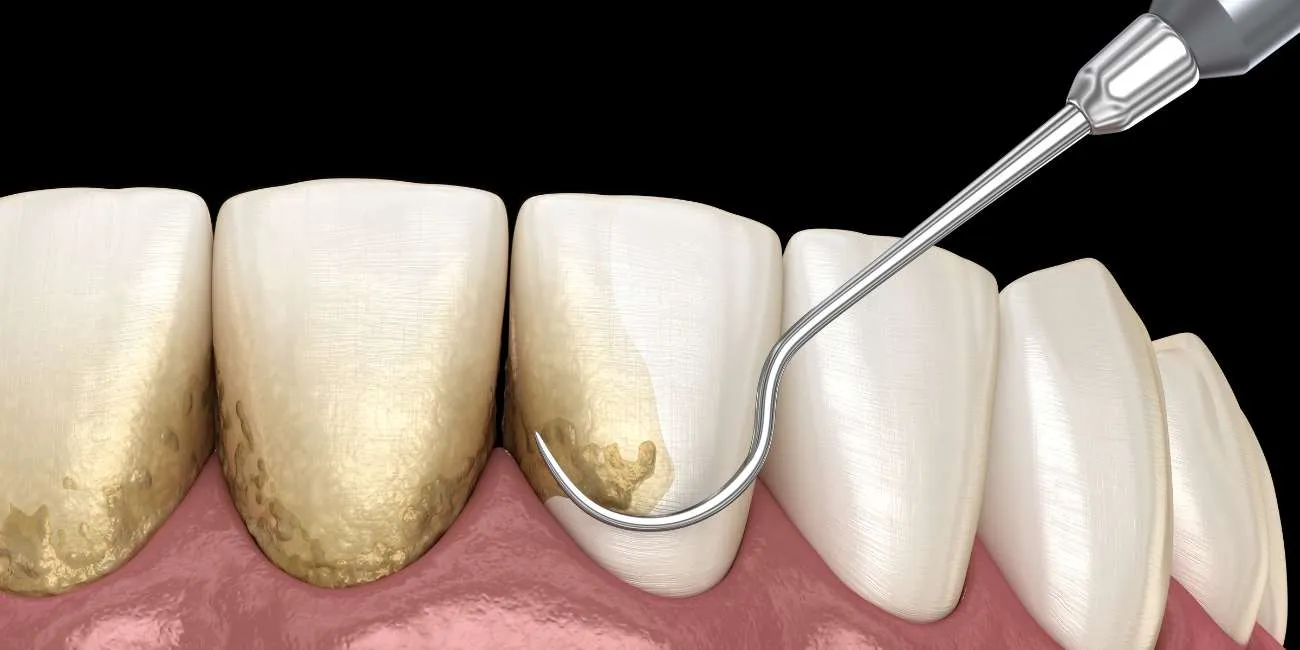

Many people experience dental anxiety or fear when it comes to dental procedures, particularly when it comes to teeth scaling and polishing. Dental anxiety can be due to a range of reasons, such as fear of pain, discomfort, the sound of dental tools, or the loss of control. However, it’s essential to recognize that teeth scaling and polishing is a necessary procedure for maintaining good oral health.
At White Perfect Dental, we understand that dental anxiety can be a significant barrier to receiving the dental care you need. We want to assure our patients that they are not alone in their fear, and we strive to create a comfortable and relaxing environment to help them feel at ease during their appointments. We believe that every patient deserves to have a healthy and beautiful smile, and we want to help our patients achieve that.
In this article, we aim to provide some tips on how to overcome the fear of teeth scaling and polishing. We believe that by following these tips, our patients can feel more relaxed and comfortable during the procedure and receive the dental care they need to maintain good oral health.
Teeth scaling and polishing is a fundamental dental procedure that involves cleaning the surface of teeth and removing the buildup of plaque and tartar. Plaque is a sticky film that forms on your teeth due to the bacteria present in your mouth. If it’s not removed, it hardens and turns into tartar, which can lead to more severe oral health problems such as gum disease, tooth decay, and bad breath.
The procedure is typically performed by a dentist using special tools, including a scaler and a polisher. During teeth scaling, the dentist uses a scaler to remove the buildup of plaque and tartar from your teeth’ surfaces and along the gum line. The scaler gently scrapes away the hardened deposits without damaging the teeth’ surface.
Once the scaling process is complete, the dentist uses a polisher to smoothen the surface of the teeth and remove any remaining stains. The polisher uses a special paste to polish the teeth, leaving them looking clean and shiny.
Teeth scaling and polishing is an essential procedure for maintaining good oral health, and it’s typically recommended every six months or as advised by your dentist or hygienist. By removing plaque and tartar buildup from your teeth, you can prevent more severe oral health problems down the line and maintain a healthy and beautiful smile.
Dental anxiety is a common issue that many people experience. Several factors can contribute to this fear, including fear of pain, the sound of dental tools, and the feeling of a loss of control during the procedure.
In the case of teeth scaling and polishing, people may be afraid of discomfort during the procedure, the sound of the dental tools, or the feeling of sensitivity in their teeth afterwards. Some may have had a negative experience with dental procedures in the past, which can contribute to their fear.
However, it’s essential to understand that teeth scaling and polishing are relatively painless procedures, and any discomfort can be easily managed with local anaesthesia. The dental team at White Perfect Dental understands that dental anxiety is a significant concern for many patients and strives to create a comfortable and relaxing environment to help patients feel at ease during their appointments. By communicating with your dentist and expressing your concerns, you can work together to find ways to manage your fear and receive the dental care you need to maintain good oral health.
Communicating with your dentist is an essential step in overcoming your fear of teeth scaling and polishing. Before the procedure, it’s crucial to let your dentist know about your fears and concerns. By doing so, they can help explain the process, answer any questions you may have, and provide reassurance. Your dentist can work with you to create a customized plan to make the procedure as comfortable and stress-free as possible.
Choosing a reputable dental clinic like White Perfect Dental is also an essential factor in reducing dental anxiety. At our clinic, we strive to create a relaxing and comfortable environment for our patients. Our staff is trained to provide gentle and caring dental services, ensuring that patients feel at ease during their appointments. We use the latest technology and techniques to ensure that our patients receive the highest quality of care.
It is typically most suitable for people with relatively healthy teeth and gums who are looking to improve the appearance of their smile. However, in cases where the teeth are severely damaged or decayed, other treatments such as crowns or implants may be necessary. It is best to consult with a dentist to determine if porcelain veneers are the best option for your specific dental needs.
If you have severe dental anxiety, you can ask your dentist about sedation options. Nitrous oxide, also known as laughing gas, or oral sedation can help you relax during the procedure. Sedation can be an effective solution for patients who have a fear of dental procedures or have had negative experiences in the past.
Distracting yourself during the procedure can also help alleviate dental anxiety. You can bring your headphones and listen to music or a podcast to distract yourself during the procedure. This can help take your mind off the procedure and create a more relaxed environment.
Practising relaxation techniques such as deep breathing, visualization, and progressive muscle relaxation can also help you relax and calm your nerves. You can practice these techniques before and during the procedure to reduce anxiety and feel more comfortable. By using these techniques and working with your dentist, you can overcome your fear of teeth scaling and polishing and maintain good oral health.
Teeth scaling and polishing are not typically painful. Your dentist can numb the area with local anaesthesia before the procedure to ensure that you don’t feel any discomfort.
It is recommended to get teeth scaling and polishing done every six months to maintain good oral health.
The duration of the procedure depends on the extent of the buildup on your teeth. Typically, it takes about 30 minutes to an hour.
If you don’t get teeth scaling and polishing done, the buildup of plaque and tartar can lead to gum disease, tooth decay, and other oral health problems.
After the procedure, you may experience some sensitivity in your teeth or minor bleeding from your gums. However, these side effects are temporary and can be managed with over-the-counter pain medication and a soft-bristled toothbrush.
In conclusion, it’s essential to overcome your fear of teeth scaling and polishing to maintain good oral health. At White Perfect Dental, we provide gentle and caring dental services to make our patients feel comfortable. By following the tips mentioned in this article and communicating with your dentist about your fears and concerns, you can overcome your dental anxiety and receive the dental care you need. Remember, regular teeth scaling and polishing can prevent more severe dental problems down the line, so don’t let your fear hold you back from maintaining a healthy and beautiful smile.
If you’re due for a teeth scaling and polishing or have any other dental concerns, contact us at White Perfect Dental to schedule an appointment. Our team of experienced and caring professionals is committed to providing you with the best possible dental care in a comfortable and relaxing environment. Don’t let dental anxiety prevent you from getting the dental care you need. Contact us today to take the first step towards a healthier smile.




Fissure sealant
Dental fillings
Root canal treatment
Tooth extraction
Wisdom tooth removal
Crowns & bridges
Branches & Operating Hours
Contact Information
Make an Appointment


Fissure sealant
Dental fillings
Root canal treatment
Tooth extraction
Wisdom tooth removal
Crowns & bridges
Branches & Operating Hours
Contact Information
Make an Appointment
Copyright © White Perfect Dental Surgery Sdn Bhd (Company No. 201001012274 (1000198-P)).
Website Managed by MYSense. All Rights Reserved.